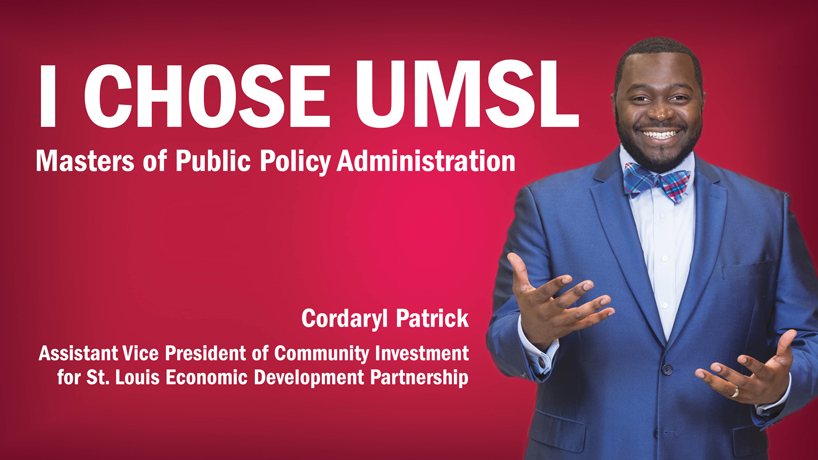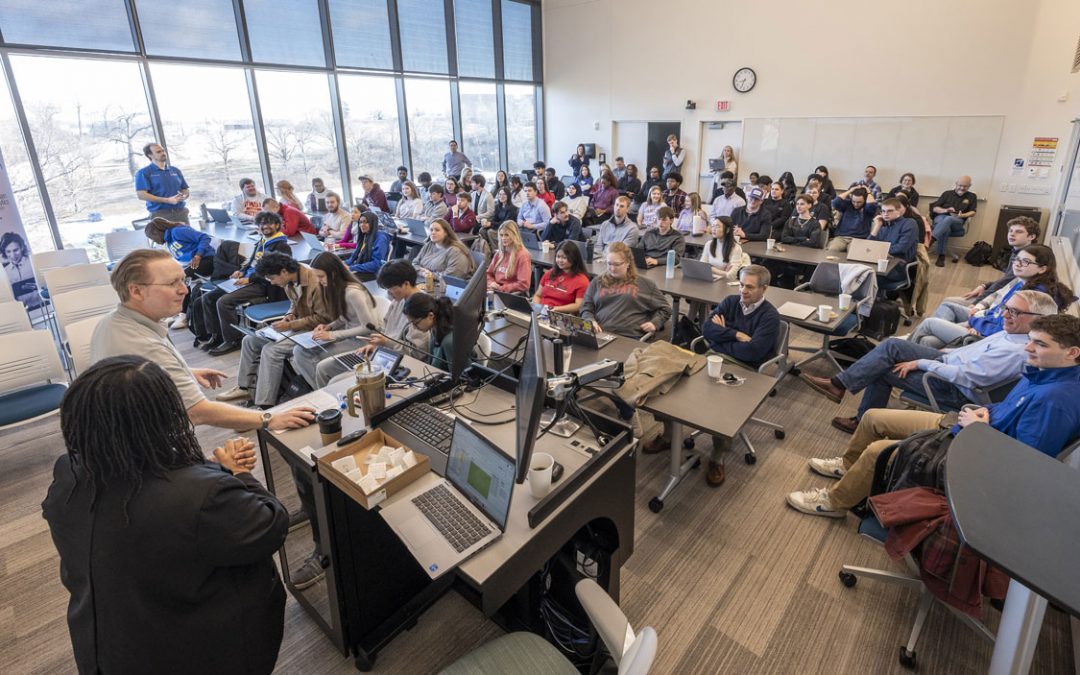
Cordaryl Patrick, assistant vice president of community investment for the St. Louis Economic Development Partnership, is just one of the local government and nonprofit leaders who have advanced their careers with a master of public policy administration from UMSL. (Graphic by Joan Barnidge)
An untold number of local government officials and nonprofit leaders in St. Louis have chosen the University of Missouri–St. Louis and its Master of Public Policy Administration program as a training ground.
The website NoGRE.com recently named UMSL to its list of the 30 Best NASPAA-Accredited MPA Programs for 2019-20. It was the only program from Missouri to make the list, which also included flagship state universities such as University of Oregon and University of New Mexico as well as The George Washington University.
The list – comprised of universities from 19 states and the District of Columbia – was created after considering options for specialization, respected research work, accommodating scheduling options, graduate outcomes and the strength of connections to the professional community.
UMSL’s program shows well in every area with tracks set up for students who want to pursue careers in nonprofit management and leadership, local government management, and policy and program evaluation.
“St. Louis is a very fragmented city, so that means that nonprofits, charitable organizations and local governments matter,” said Adriano Udani, an associate professor of political science and director of public policy administration. “We provide the skills and networking opportunities for students who wish to work in those areas. A lot of our students and a lot of our alumni have stayed in St. Louis, and I think that has created a really nurturing and supportive alumni base and network for incoming students to utilize.
“I think that our emphasis areas have done a really good job of honing their skills of community collaboration, of taking leadership in the nonprofit and local government sectors.”
UMSL also found its way onto the list because it does not require students to take the GRE Test to gain admission to the program.
Udani expressed pride in that fact, noting that the GRE has been seen by many as a barrier that has kept members of socially disadvantaged groups from pursuing postgraduate education.
“If anything, the other reason why I feel strongly that we don’t require the GRE is that many of our students are working professionals who have built a career on amplifying the voices of marginalized groups,” he said. “They may be in work that has never required a GRE, and it would just be a shame to add one more thing for them to do to get into a program that would help them further amplify the voices and communities that they care about.”














